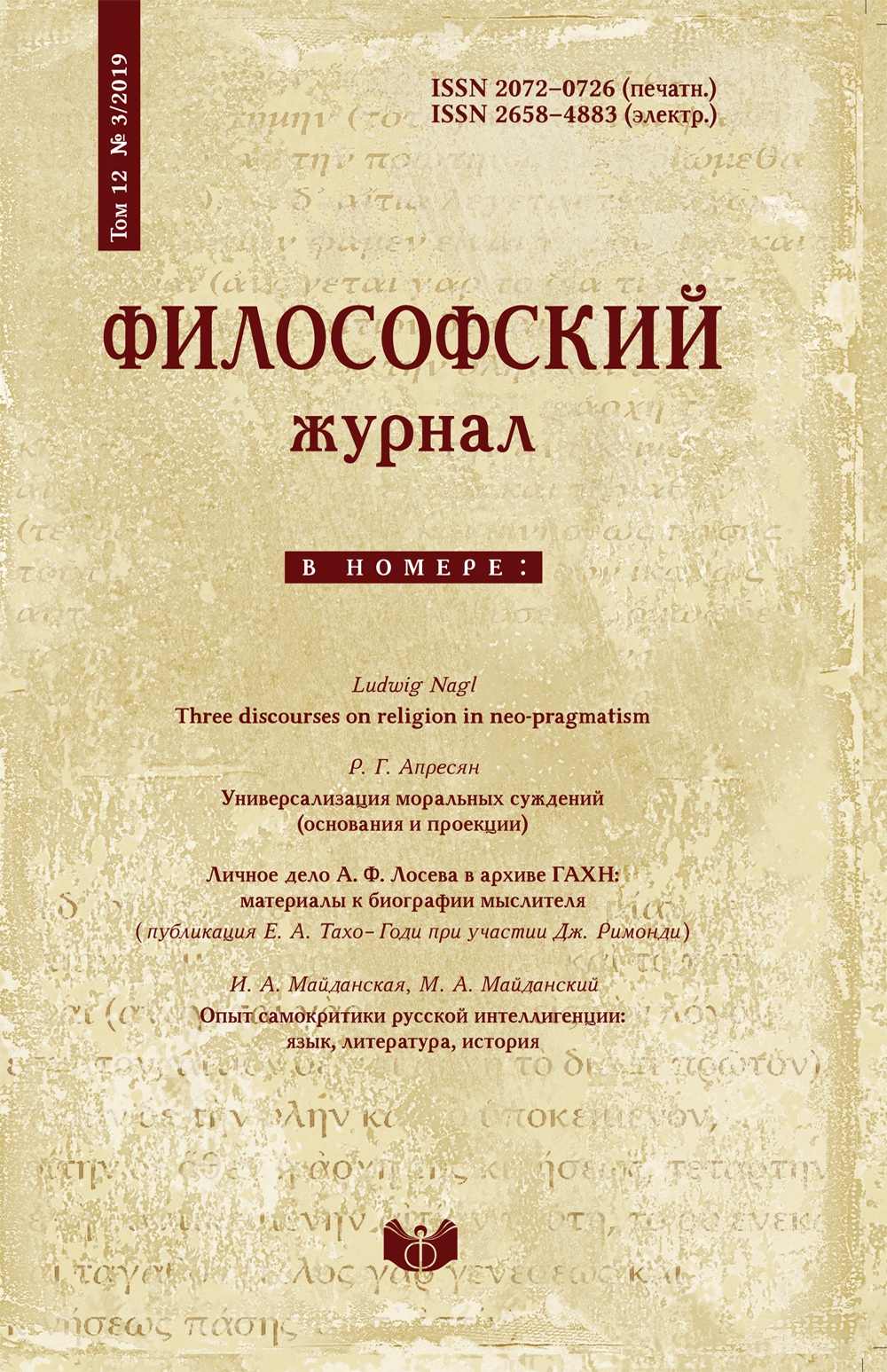An essay of self-criticism of the Russian intelligentsia: language, literature, history
DOI:
https://doi.org/10.21146/2072-0726-2019-12-3-174-180Keywords:
intelligentsia, Dostoevsky, Lev Tolstoy, Strachov, the Russian idea, integral person, philosophy of life, meaning of lifeAbstract
In the new book by Svetlana Klimova, the history of formation of the Russian intelligentsia is traced, and its specific “binary mythological consciousness” is under critical examination. Here, the intelligentsia is not so much a sociological concept, but rather an ideological one. It is inherited from the authors of the collection Vekhi. The intelligentsia includes only those whose minds fit into a quasi-religious discourse, the characteristic features of which are (i) an irreconcilable opposition to the authorities, (ii) a posture of the prophet, convinced of his moral and intellectual superiority over the enemy, (iii) the perception of society through the prism of binary oppositions “progressive vs. reactionary,” “old vs. new,” “friend vs. foe,” with a periodic inversion of values, (iv) the romantic cult of the revolution, on the one hand, and the cult of religion, on the other. At the same time, Klimova discusses the formation of a “dialogical” discourse, which she sees an alternative to the discourse of the intelligentsia. The key terms of this new discourse are “whole,” “holistic,” “integrity.” Leo Tolstoy and Fyodor Dostoevsky become the inspiration of the “dialogists” (even though Dostoyevski, according to Klimova, did not fully overcome the temptation towards myth-making of the kind characteristic of the intelligentsia). Klimova argues that these Russian writers showed us the “living love” in all its richness and diversity of its manifestations. She pays special attention to the subjective side of their works, viz. to private correspondence and diaries, personal traits and concrete circumstances of their lives. A large section is devoted to Leo Tolstoy’s “philosophical dialogue” with the literary critic Nikolay Strakhov. Klimova regards their correspondence as a starting point of the religious and philosophical turn in the creative work of Tolstoy. Strakhov became a “co-author of understanding,” who helped Tolstoy develop his “new philosophy of life.” The foundation and source of this philosophy is the subjective feeling of life: “I live.”






